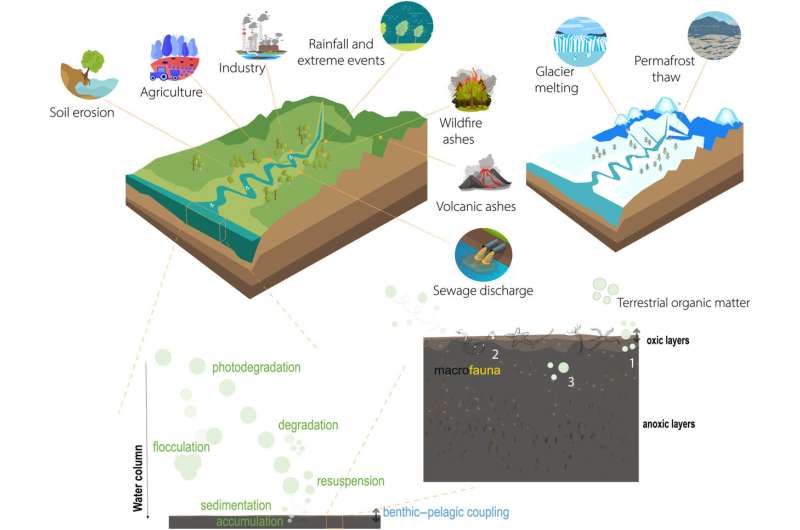Study shows runoff can be an important source of energy for coastal organisms and animals

Not everything that flows into the sea is waste. “In the past, we’ve heard that runoff and drainage from land is bad for the ocean. Now we see that it can also be an important resource,” says Juan Pardo, Ph.D. student in the Center for Coastal Research (CCR) at UiA.
The results are part of Pardo’s new study “The interplay between terrestrial organic matter and benthic macrofauna: Framework, synthesis, and perspectives,” published in Ecosphere. There he looks at the relationship between organisms that live at the bottom of the ocean and organic material from land, among other things. “Especially the animals and organisms that live entirely at the bottom of the sea get energy from waste or degradable material such as plants, animals and human activities,” he says.
Physical, chemical and biological factors play a decisive role in the formation of ecosystems.
“Organisms on the seabed are important for the marine ecosystem. They play an important role in the carbon cycle. They also contribute to diversity and serve as food for small fish and other prey,” says Pardo.
The marine organisms help to bind and store carbon, which is important for the functions of the marine ecosystem.

Climate change threatens coastal ecosystems
The study shows that runoff from land is an important resource for the sea in normal weather conditions. But normal weather is constantly being challenged by extreme weather due to climate change, which can have negative consequences. Drainage from land, in addition to floods, landslides and storms, threatens coastal ecosystems.
“Heavy rainfall and landslides affect the interaction between land and sea,” he says.
Pardo highlights how Norway is experiencing darker waters along the coast. This is closely related to climate change which, among other things, results in more drainage from land and runoff to the sea.
Global perspectives and knowledge gaps
The study shows that organic material from land plays an important role in the coastal area, but knowledge in the field is still somewhat limited. Pardo hopes for more research and better monitoring to manage the challenges going forward.
“The study underlines the need to monitor and understand how changes in the supply of organic material affect life in the sea, especially in view of the climate changes we’re facing,” he says.
The study is based on data from all over the world. However, Pardo would want to see more data from and cooperation with Asia.
“In the global south there are many important natural systems, and it would have been interesting to know more about how communities there are affected by runoff from land and how their way of life changes.”
More information:
J. C. F. Pardo et al, The interplay between terrestrial organic matter and benthic macrofauna: Framework, synthesis, and perspectives, Ecosphere (2023). DOI: 10.1002/ecs2.4492
Provided by
University of Agder
Citation:
Study shows runoff can be an important source of energy for coastal organisms and animals (2023, July 14)
retrieved 14 July 2023
from https://phys.org/news/2023-07-runoff-important-source-energy-coastal.html
This document is subject to copyright. Apart from any fair dealing for the purpose of private study or research, no
part may be reproduced without the written permission. The content is provided for information purposes only.
For all the latest Science News Click Here
For the latest news and updates, follow us on Google News.

